Chairman of Nghe An Provincial People's Committee: The Education sector proactively plans arrangement and management when removing the district level
Chairman of the Provincial People's Committee Le Hong Vinh emphasized the need to proactively develop plans to arrange and manage education when eliminating district level and expanding commune level, ensuring efficiency, effectiveness and efficiency.
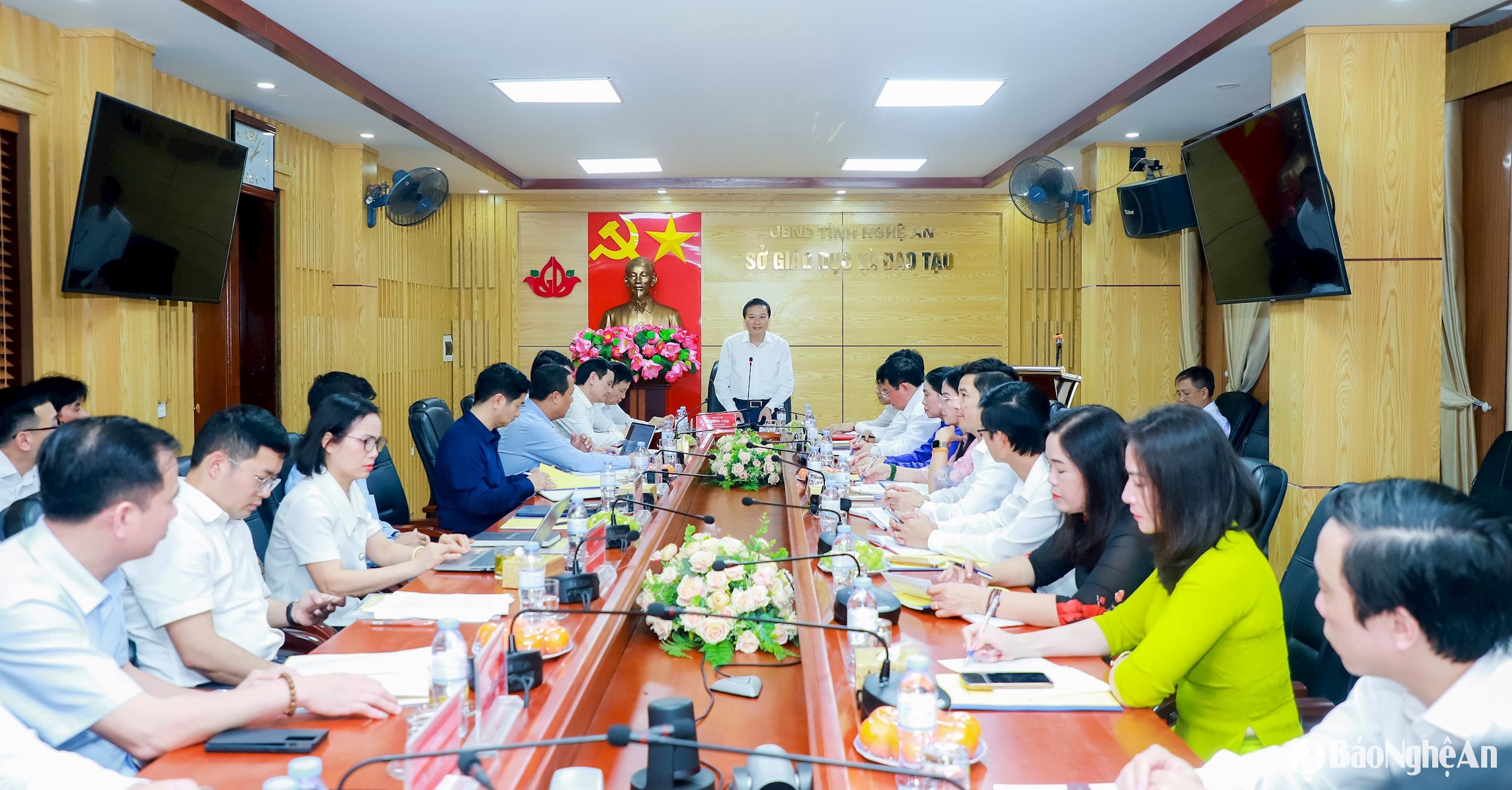
On the afternoon of March 27, comrade Le Hong Vinh - Deputy Secretary of the Provincial Party Committee, Chairman of the Provincial People's Committee worked with the Department of Education and Training.
Attending the meeting were comrade Bui Dinh Long - Member of the Provincial Party Executive Committee, Vice Chairman of the Provincial People's Committee; leaders of the Provincial People's Committee Office and a number of departments and branches.
Working with the delegation were Prof. Dr. Thai Van Thanh - Member of the Provincial Party Executive Committee, Director and comrades in the Board of Directors, leaders of specialized departments of the Department of Education and Training; universities, vocational colleges under the Provincial People's Committee and Vinh University.
Comprehensive education quality has steps forward.
remarkable development
At the meeting, the Chairman of the Provincial People's Committee and the working delegation listened to the leaders of the Department of Education and Training report on the results of implementing tasks in the fields of preschool, general and continuing education; vocational education and higher education since the beginning of the term.
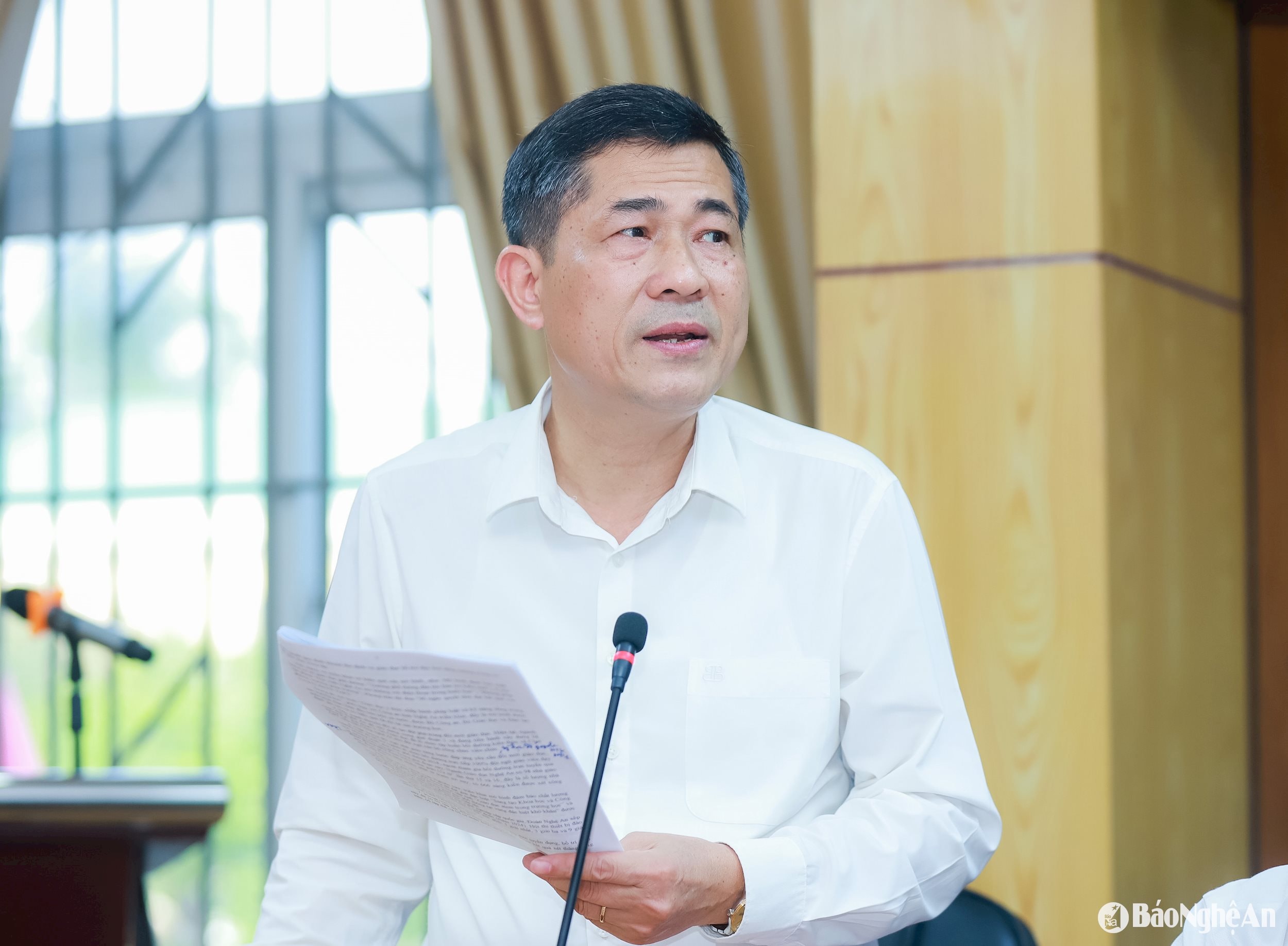
Accordingly, in the period of 2020 - 2025, Nghe An province has had many policies and solutions for comprehensive development and educational and training breakthroughs in the province; especially the province is a pioneer in building and effectively implementing the 2018 General Education Program, a number of school models and educational activities, creating fundamental and comprehensive innovation breakthroughs, developing learners' qualities and capacities.
Nghe An is also the first province in the country to build and implement three specific provincial policies on educational development, including: Supporting ethnic and mountainous education; training Lao students in high school programs; and developing educational services.
.jpg)
Nghe An Education Sector has also promoted digital transformation, aiming at a dual goal: both changing the form of management, administration and teaching activities, and providing high-quality human resources to form a digital government, digital economy and digital society.
With strategic steps, the quality of comprehensive education has made remarkable progress, affirming its position in the top of the country. Nghe An's 2024 high school graduation exam achieved outstanding results, ranking 12th out of 63 provinces and cities, up 22 places compared to 2021.
In terms of key education, Nghe An always maintains its ranking in the top 3-5 leading units nationwide in terms of the quality of excellent students nationally, regionally and internationally every year.
.jpg)
Up to now, the Education sector has completed and exceeded the target of the 19th Nghe An Provincial Party Congress, in which the expected rate of schools meeting national standards by 2025 is over 80% (the target of the congress resolution is 78%). The rate of trained workers is estimated to reach 71.5% by the end of 2025, equal to the target of the congress resolution); in which the rate of diplomas and certificates increased from 25.3% to 31% (an increase of 5.7%).
The sector has also consistently and effectively implemented the policy of streamlining the apparatus and synchronously implementing the network of schools and classrooms in the province: Merging Nghe An Pedagogical College into Nghe An University of Economics, changing the name of Nghe An University of Economics to Nghe An University; merging and reducing 41 schools, 157 public preschool and general schools; reducing 1 provincial center; reducing 13 vocational education facilities.
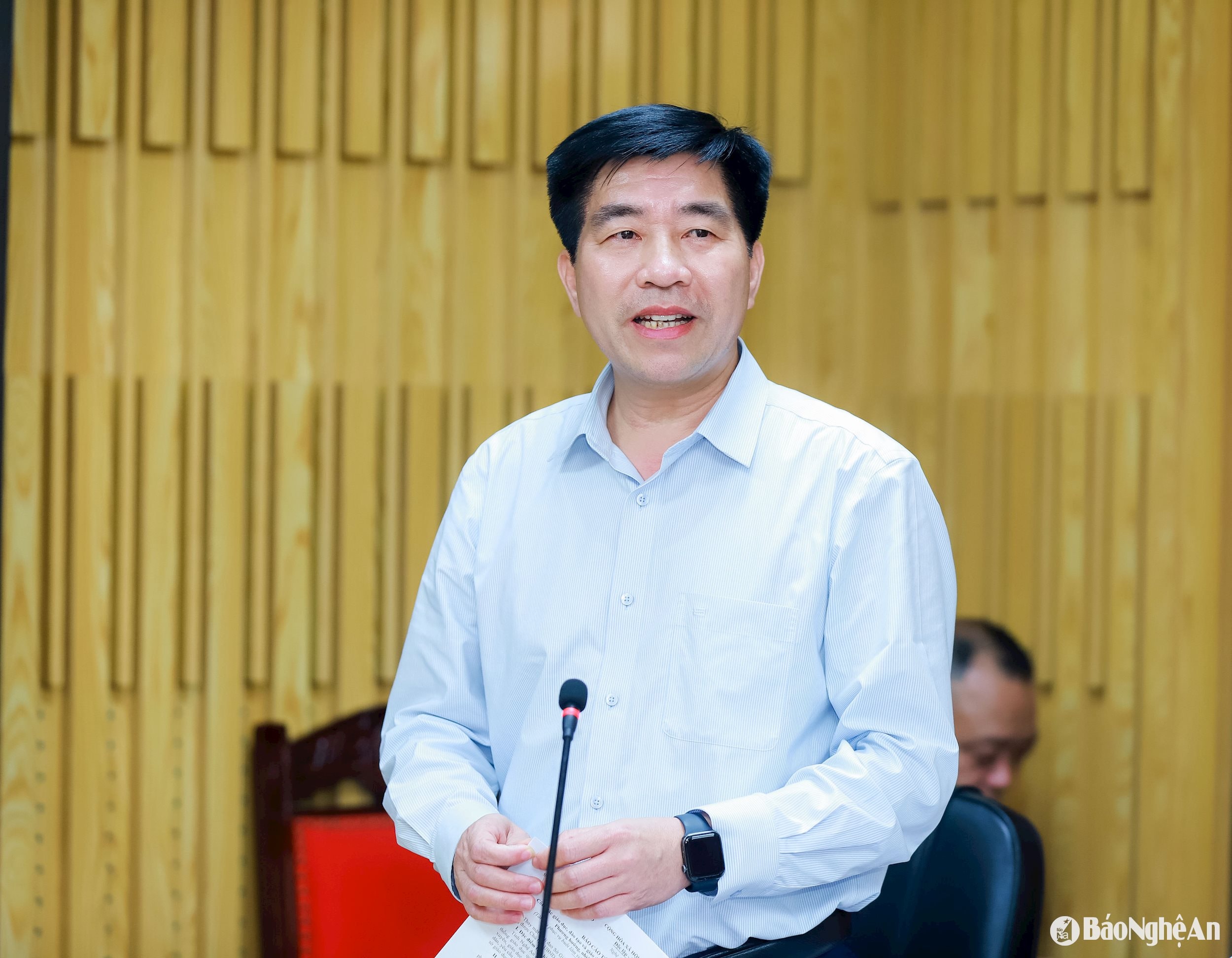
However, the Education and Training sector of Nghe An is also facing many challenges and difficulties, especially the uneven quality of mass education and difficulties in ethnic minority and mountainous areas.
In particular, implementing the policy of streamlining staff has led to a shortage of preschool teachers, general education teachers, and vocational teachers, affecting technology transfer, education quality, and educational goals.
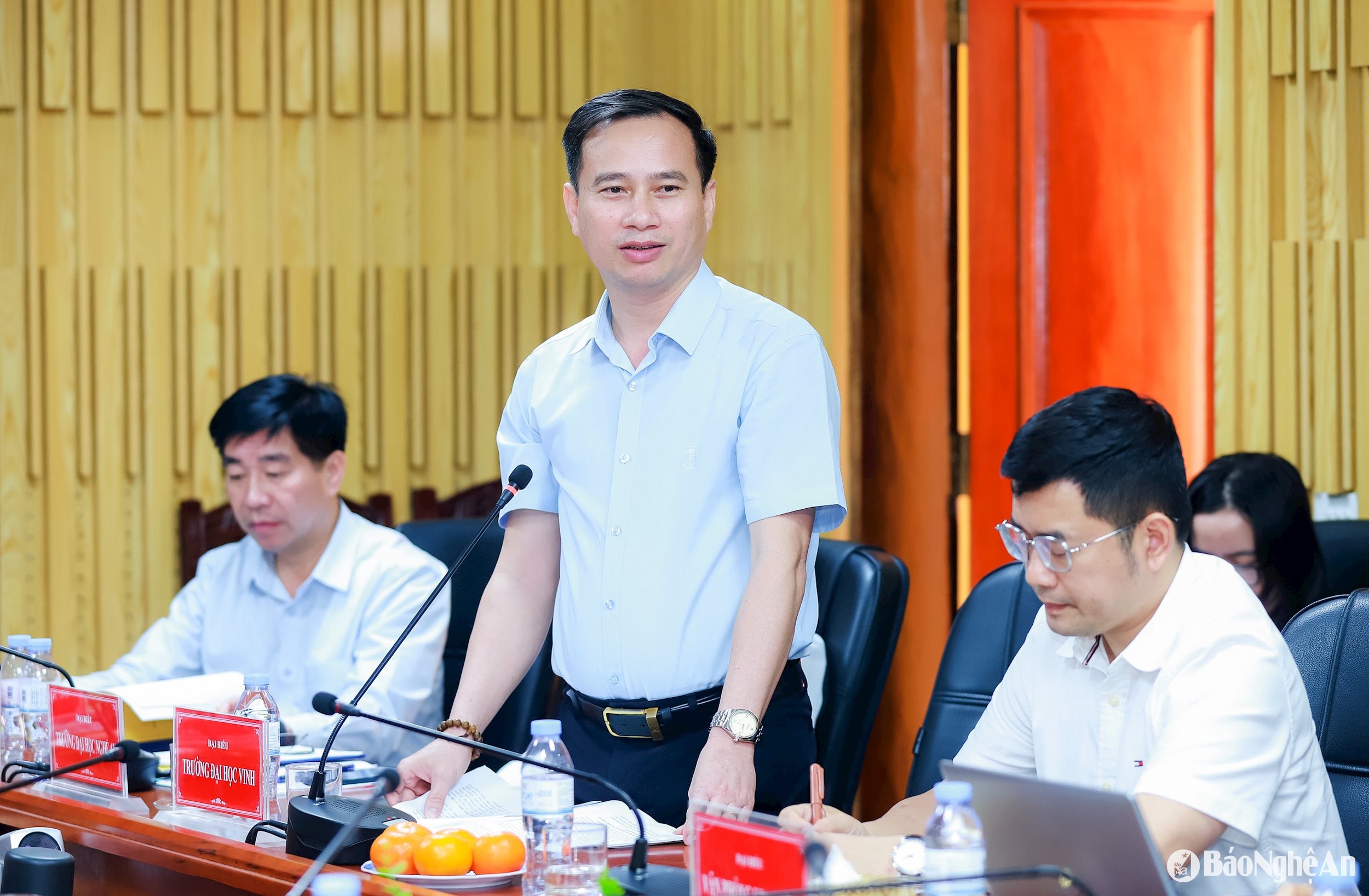
Speaking at the meeting, after pointing out some limitations in current education and training activities, Vice Chairman of Nghe An Provincial People's Committee Bui Dinh Long requested the entire sector to perform well two groups of tasks.
First of all, it is necessary to carry out well the tasks assigned by the province, especially planning the school network after eliminating the district level and expanding the commune level; planning the vocational training network in a streamlined and strong direction; reviewing the teaching staff to arrange and recruit effectively; advising on the issuance of a number of policies for boarding students in mountainous areas...
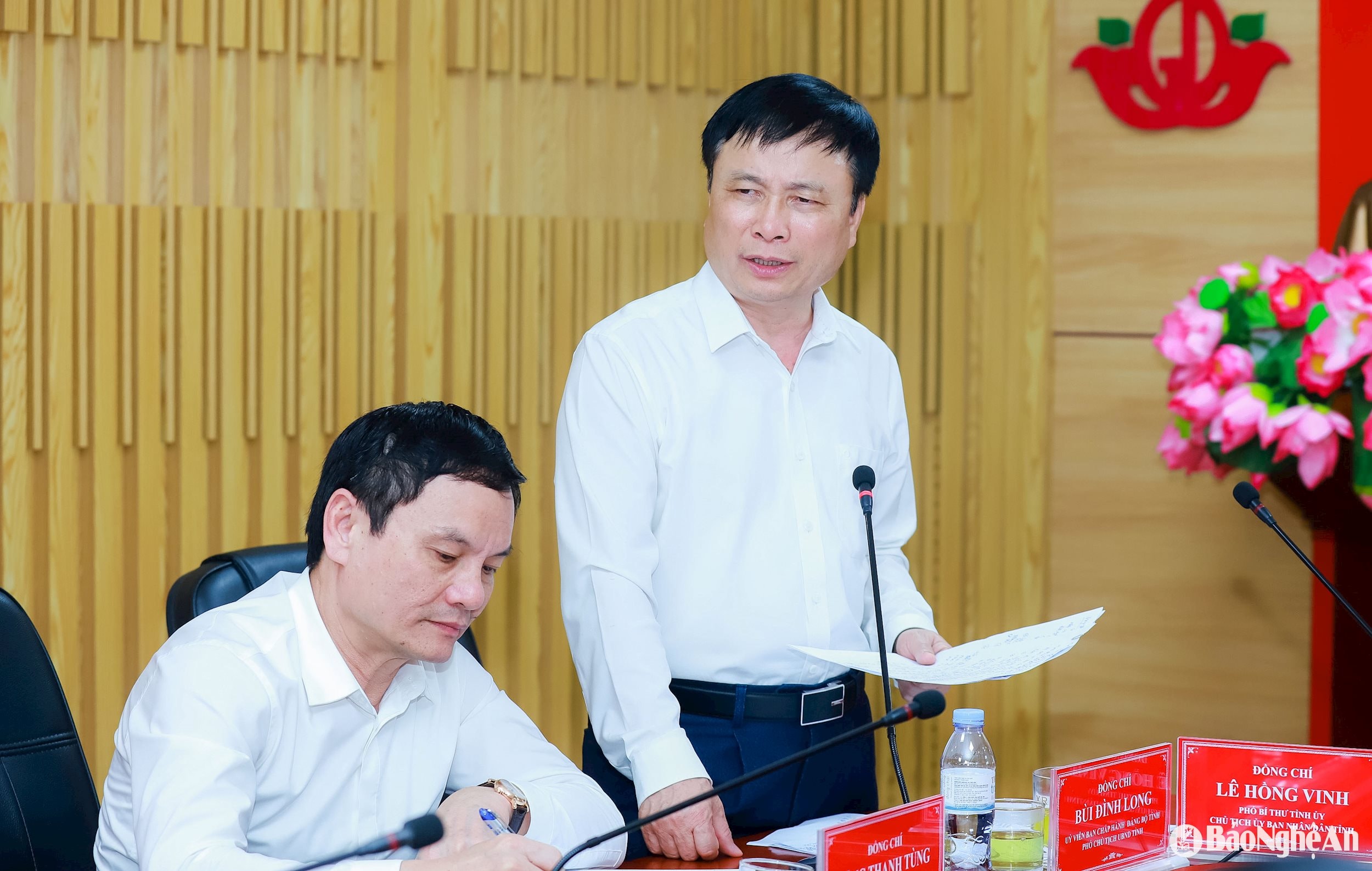
Regarding the second task, the Vice Chairman of the Provincial People's Committee requested the sector to create a healthy and inspiring environment for teachers to focus on performing well in teaching through a general review of the tasks of the school system to direct the organization of healthy teaching and learning competitions. To do so, right from the department, the Board of Directors, and specialized departments need to review the operating regulations and assign responsibilities in the direction of "clear people, clear work, clear responsibilities...".
The Vice Chairman of the Provincial People's Committee also requested the sector to strengthen inspection and supervision work, especially focusing on areas that society is interested in, such as implementing Circular No. 29 of the Ministry of Education and Training regulating extra teaching and learning; activities of foreign language centers, etc.
Developing the Education and Training sector comprehensively, substantially and sustainably
Concluding the meeting, Deputy Secretary of the Provincial Party Committee and Chairman of the Provincial People's Committee Le Hong Vinh acknowledged and commended the achievements and shared the difficulties and challenges of the Education and Training sector of Nghe An.
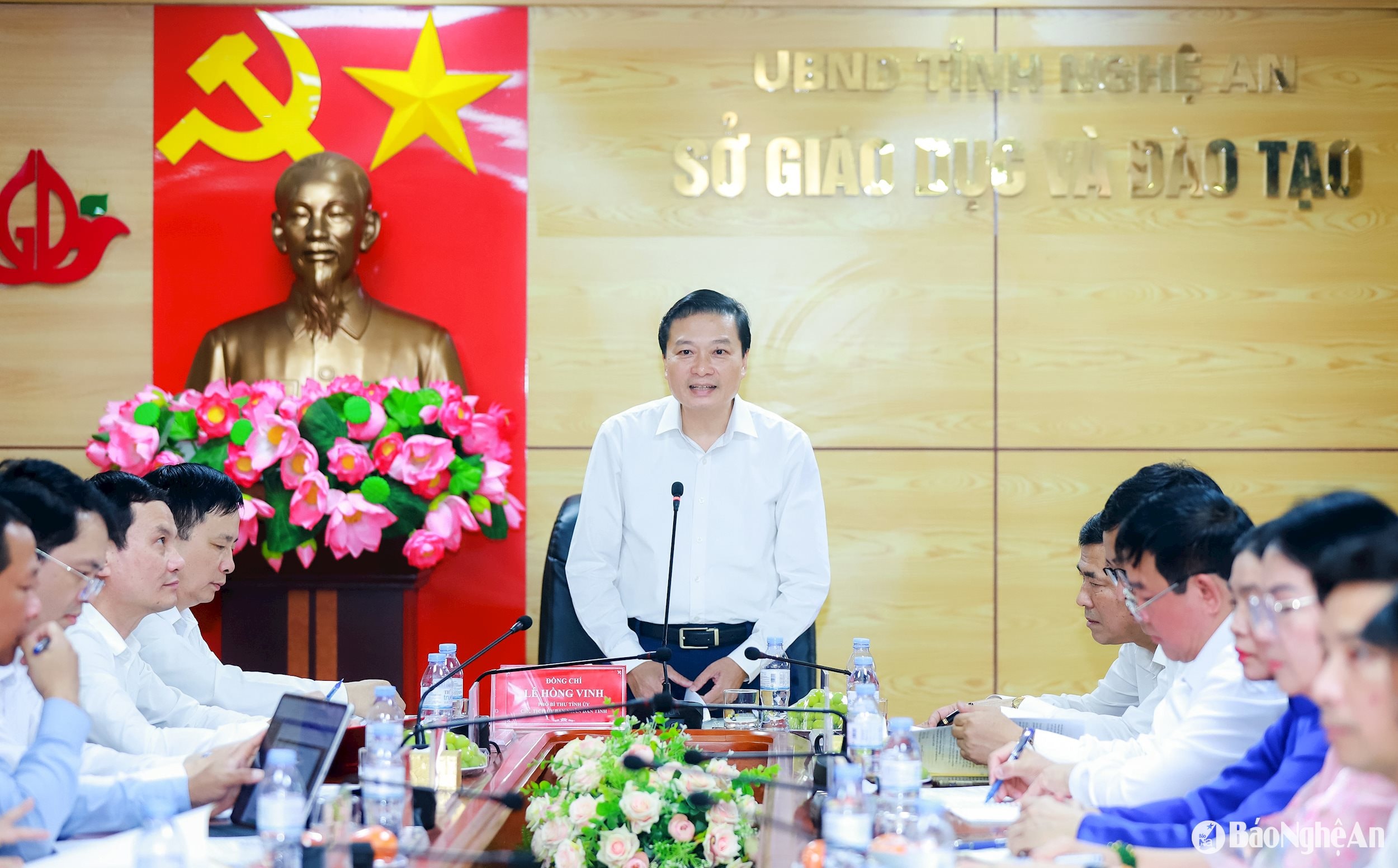
The Chairman of the Provincial People's Committee exchanged views on developing the province's Education and Training sector comprehensively, substantially and sustainably; not only stopping at imparting professional knowledge but also equipping students with essential skills in the new era, such as Foreign Languages, Information Technology and understanding of local cultural and historical traditions; thereby promoting the tradition of studiousness of Nghe An homeland, while implementing the goals in Resolution 39 of the Politburo on building and developing Nghe An province to 2030, with a vision to 2045, including the goal of becoming the center of the North Central region in education and training.
With that perspective and vision, the head of Nghe An Provincial People's Committee assigned specific tasks, associated with analysis, orientation, and suggestions for specific solutions for the Education and Training sector in coordination and implementation.
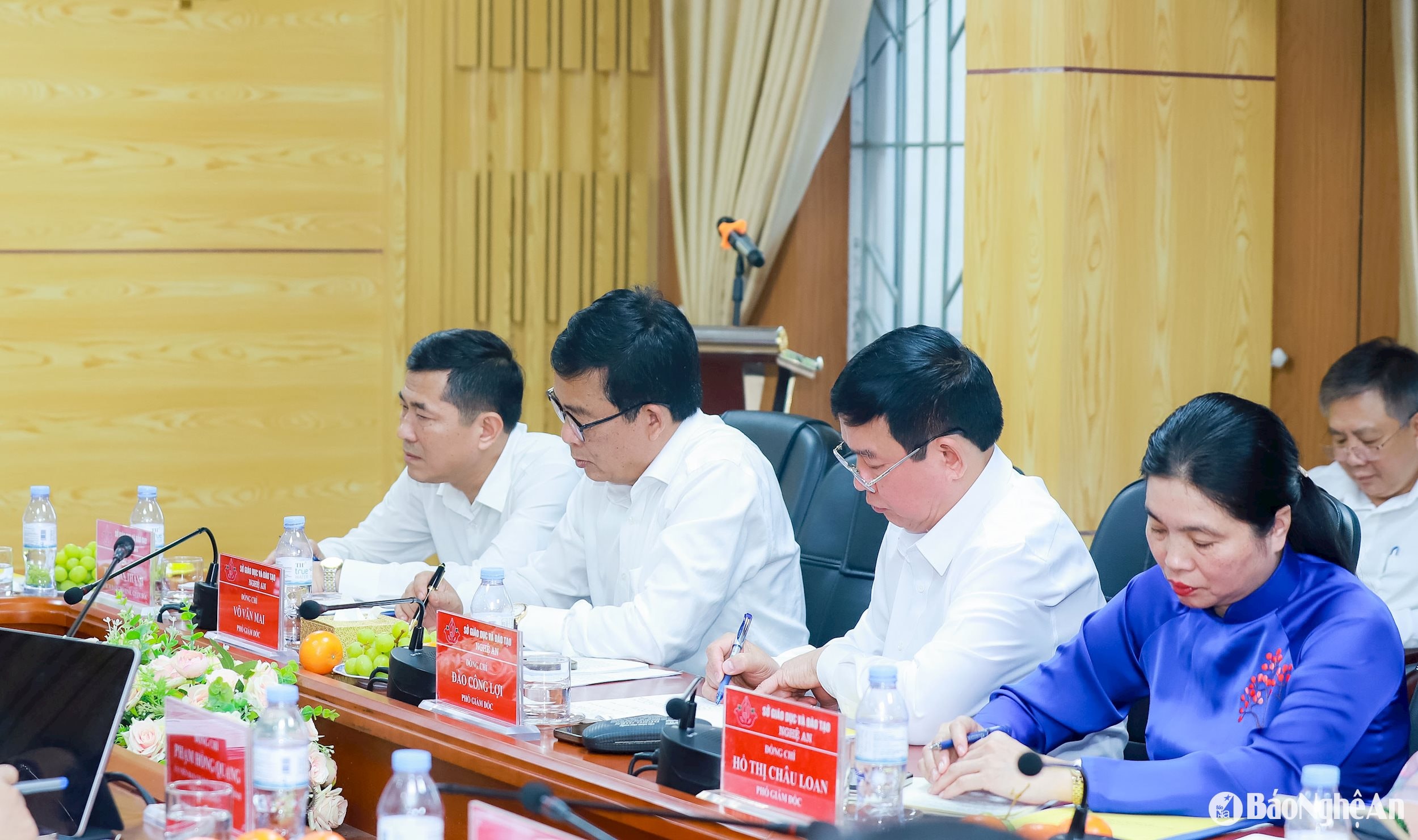
Regarding the Department of Education and Training, the Chairman of the Provincial People's Committee requested the Department to implement the Project on streamlining the apparatus to ensure the educational management and administration system is truly effective, efficient, and improve the quality of education.
In particular, in the context of preparing to abolish the district level and expand the commune level, the Department needs to closely follow the directions of the Central Government, the Ministry, and draft laws related to the industry to direct specialized agencies to comprehensively review the entire industry in the area regarding teachers and facilities of 4 levels of education to proactively develop a plan for effective arrangement and management after the apparatus arrangement, and orient the training spearheads to propose to the Provincial People's Committee.
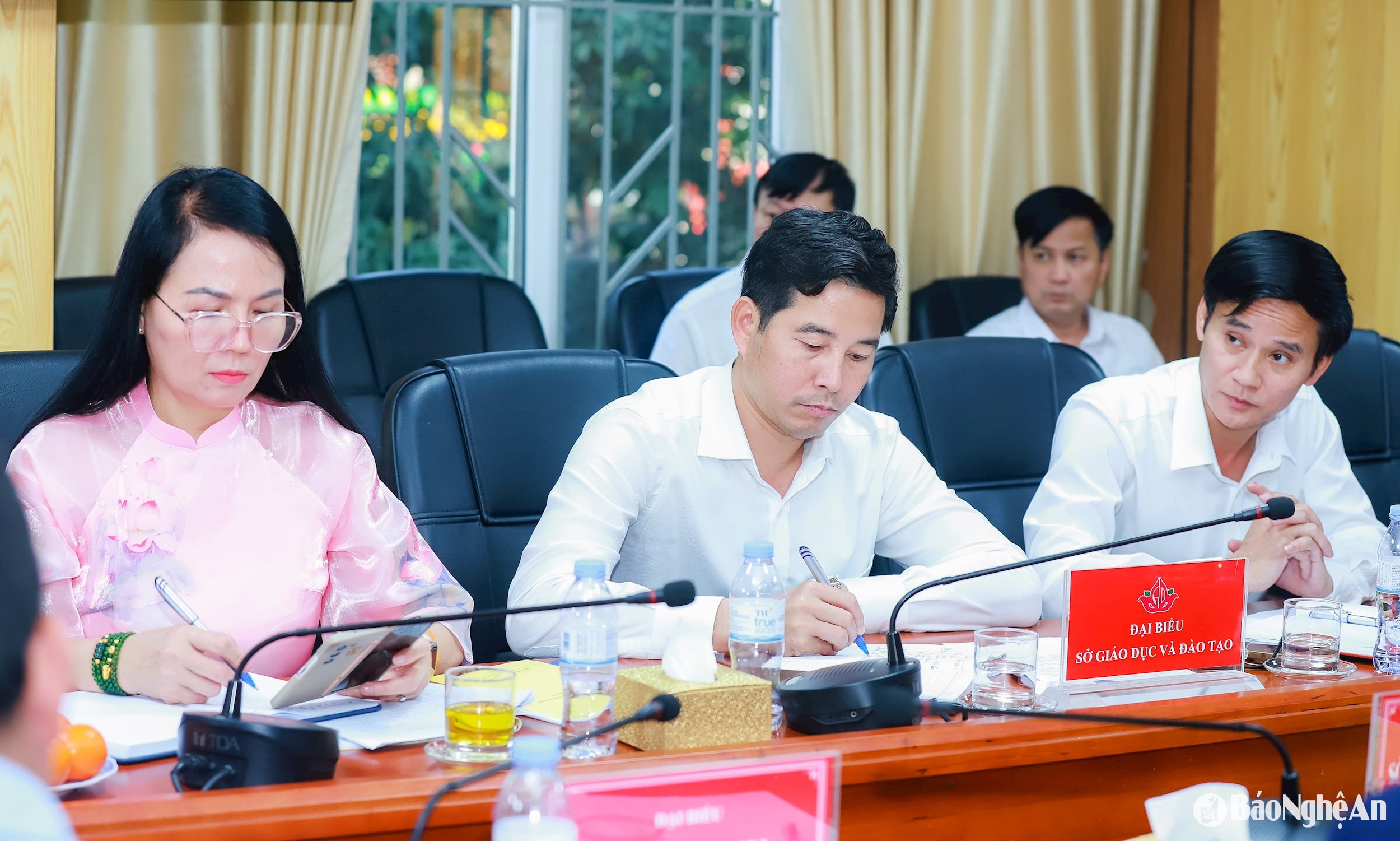
The Chairman of the Provincial People's Committee also requested the Department to continue implementing the sustainable development strategy; continue to fundamentally and comprehensively innovate education and training; apply science and technology, digital transformation and build appropriate foreign language and information technology programs in schools in the period of international integration; evaluate and replicate high-quality model schools.
The Department of Education and Training also needs to urgently rectify and put vocational training institutions, after being transferred from the old Department of Labor, Invalids and Social Affairs, into orderly operation; strengthen the inspection and supervision of the industry in all management areas, especially the implementation of Circular No. 29 of the Ministry of Education and Training regulating extra teaching and learning.
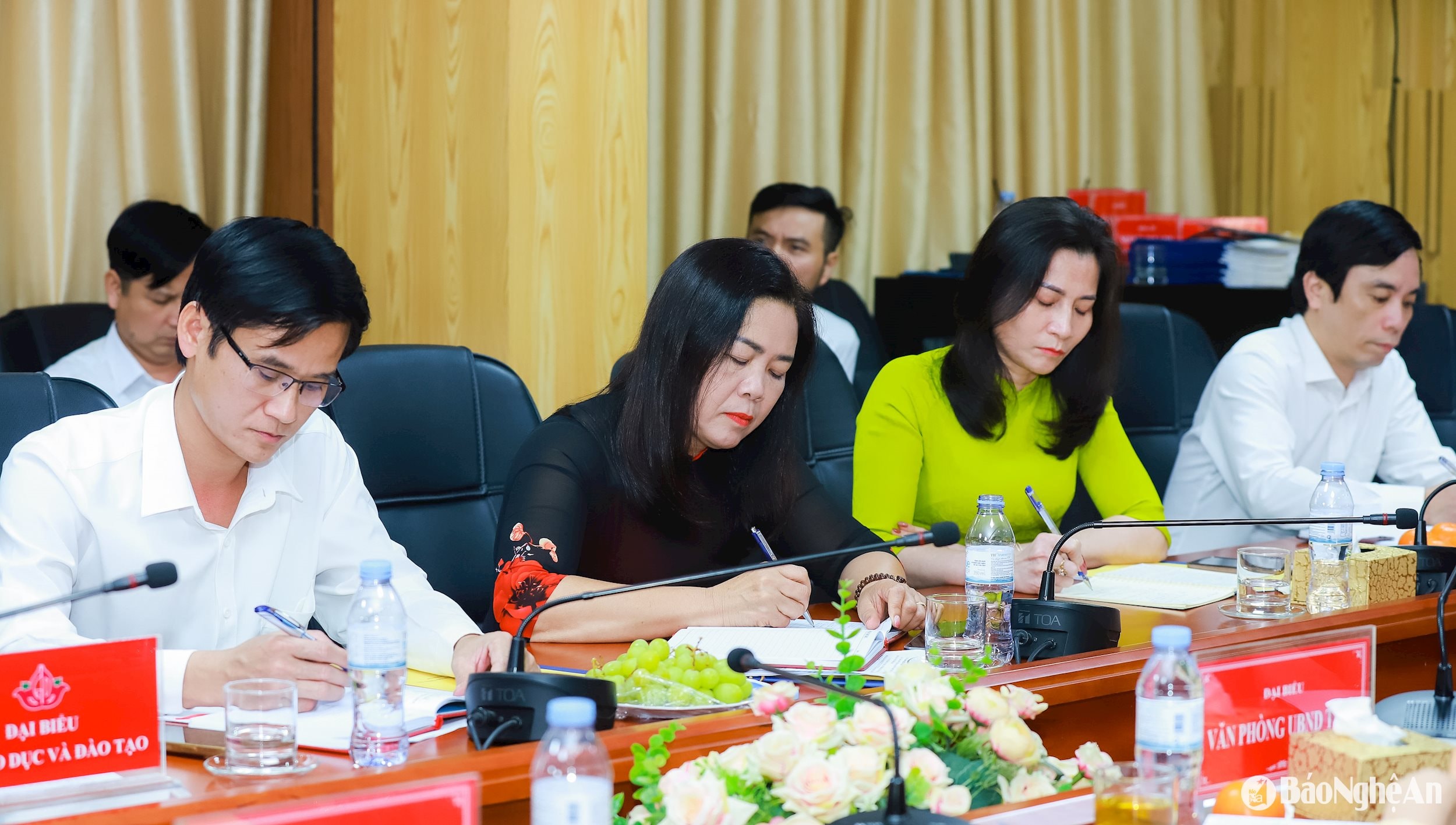
The Chairman of the Provincial People's Committee also assigned the Department of Education and Training to coordinate with the Department of Finance to calculate and prepare resources to implement the policy of exempting all tuition fees for students according to the general policy of the whole country; review current policies being implemented to adjust, supplement or terminate, and at the same time develop policies suitable to the new situation; especially for mountainous areas, ethnic minority areas, educational areas, boarding houses for teachers, dormitories for students; minimize the difference in teaching and learning conditions between regions.
In the immediate future, the Department needs to direct and prepare well the conditions to organize the 10th grade high school entrance exam and high school graduation exam in June 2025 safely and seriously, especially in the upcoming condition that the district-level government will not organize the exam. It is necessary to prepare plans to coordinate with relevant sectors for direction.
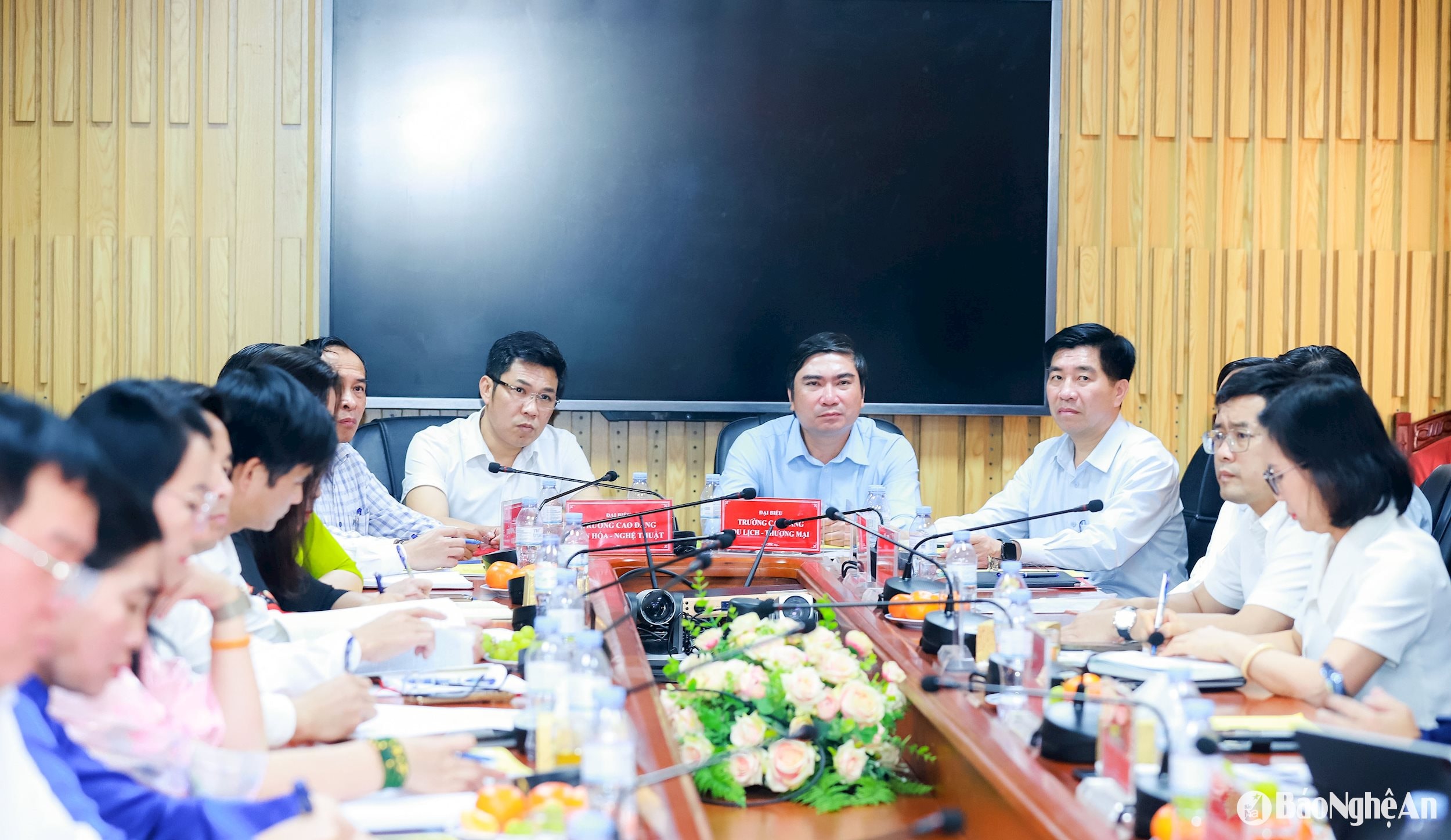
The Chairman of the Provincial People's Committee also mentioned many solutions and orientations to improve the quality and efficiency of university and vocational education activities; especially the need to promptly advise the Standing Committee of the Provincial Party Committee to comprehensively restructure universities and colleges in the province according to industry groups and school advantages, limit duplication, to maximize development resources; research and reorganize intermediate schools in a regional direction.
The Chairman of the Provincial People's Committee also responded to the recommendations of the Department of Education and Training on investment in facilities; considering mechanisms for foreign language training and development for teachers and recruitment policies.
Currently, the whole province has 1,506 kindergartens, primary schools, junior high schools, and high schools (including 84 non-public schools, an increase of 6 schools compared to 2020); 19 vocational education - continuing education centers, 1 vocational guidance continuing education center, 1 continuing education center and 412 commune-level community learning centers; 6 universities, 35 vocational education institutions (including 21 public units and 14 non-public units participating in vocational training), including: 9 colleges, 12 intermediate schools, 1 vocational education center, and 13 other facilities participating in vocational training.


